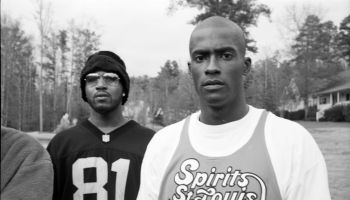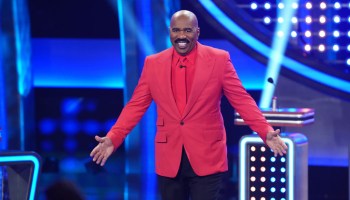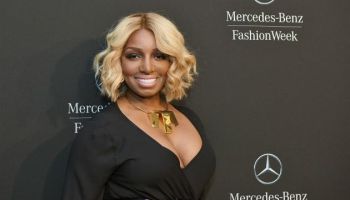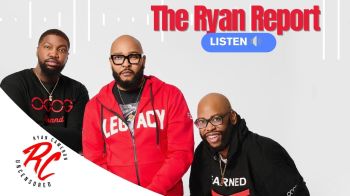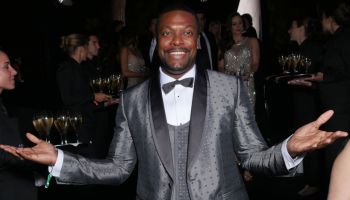VIA: New York Times
WASHINGTON — The civil rights movement will come alive in song at the White House on Wednesday night, when President Obama plans to celebrate Black History Month with a star-studded concert.
And it came alive in quiet conversation on Martin Luther King’s Birthday, when Mr. Obama installed a rare signed copy of the Emancipation Proclamation in the Oval Office and invited a small group of African-American elders and young people in for a private viewing.
The two events — a televised extravaganza with celebrities like Morgan Freeman and Queen Latifah, and an intimate discussion with people like Dorothy Height, the 97-year-old chairwoman of the National Council of Negro Women — reflect the nuances in Mr. Obama’s handling of the often incendiary issue of race in America. He is using his platform to advance racial consciousness, even as he has steered clear of putting race front and center in his administration.
It is a balancing act that has frustrated some black leaders and scholars, who are starting to challenge Mr. Obama’s language and policies.
On Capitol Hill, members of the Congressional Black Caucus have expressed irritation that Mr. Obama has not created programs tailored specifically to African-Americans, who are suffering disproportionately in the recession. In December, some of them threatened to oppose new financial rules for banks until the White House promised to address the needs of minorities.
“I don’t think we expected anything to change overnight because we had an African-American in the White House, but the fact still remains that we’ve got a constituency that is suffering,” said Representative Elijah E. Cummings, Democrat of Maryland. “I think he could do more, and he will do more.”
In an interview in late December with American Urban Radio Networks, a group of black-owned stations, Mr. Obama conceded that there was “grumbling” among African-Americans, especially about his jobs policies. But he rejected the idea that he should pay special attention to them — an argument that Earl Ofari Hutchinson, a black author and political analyst, called “disingenuous at best, and an insult at worst.”
Mr. Obama framed it this way: “I can’t pass laws that say I’m just helping black folks. I’m the president of the United States. What I can do is make sure that I am passing laws that help all people, particularly those who are most vulnerable and most in need. That in turn is going to help lift up the African-American community.”
Until now, black leaders have tended to tread lightly in criticizing Mr. Obama, and some find it painful. Black Americans remain overwhelmingly supportive of Mr. Obama; a recent ABC News poll found that 96 percent approve of his job performance.
The conventional wisdom about Mr. Obama is that he tries to duck the issue of race, but close advisers say he is acutely aware of his role as the first African-American president and is trying to heighten racial sensitivity in constructive ways.
Many black leaders view this as wise. The Rev. Al Sharpton, who is working with Mr. Obama to close the achievement gap in education, says the president is smart not to ballyhoo “a black agenda.”
Instead, Mr. Obama has been trying to shine a spotlight on the history that laid the foundation for his presidency, with events like Wednesday’s concert and the celebration of the Rev. Dr. Martin Luther King Jr.’s birthday, which offer a peek into his style.
Valerie Jarrett, a senior adviser to the president, said the King event was intended as “an intergenerational conversation” in which guests could share their experiences in a “safe and private moment.” Before the Oval Office tour, they gathered in the Roosevelt Room and Mr. Obama invited each to speak.
Dr. Height began with the story of her first encounter with the young Martin Luther King Jr., then 15 and trying, she said, to “analyze his own thoughts as he was trying to determine whether he wanted to enter the ministry, education or law.”
A local pastor, John Pinkard, recounted his dinner with Dr. King. Participants said the session seemed as much for the president’s benefit as their own.
“My impression was that it was deliberately something for him and for Michelle, and that it was kind of like medicine, it was healing for them,” said the historian Taylor Branch, who also attended. “It seemed to answer something personal for them.”
Race, of course, can be an incendiary issue in American politics: as a candidate, the biracial Mr. Obama was criticized as either too black or not black enough. He addressed the topic memorably in a speech in Philadelphia after the controversy involving his former pastor, the Rev. Jeremiah A. Wright Jr.
Ms. Jarrett said, “He has communicated quite clearly his thoughts on the subject.”
As president, Mr. Obama learned the pitfalls of talking bluntly about race. His comment that police officers in Cambridge, Mass., “acted stupidly” when they arrested a black Harvard professor, Henry Louis Gates Jr., caused an uproar, and the ensuing “beer summit” at the White House proved a distraction.
Charles Ogletree, a Harvard law professor who represented Mr. Gates and is close to Mr. Obama, said the president had never hesitated to talk about race but is more scripted now. “I think there is a carefulness — not a reluctance — but a carefulness about what should be said going forward,” he said.
Professor Ogletree said he “finds puzzling the idea that a president who happens to be black has to focus on black issues.”
Dr. Height agreed. Having counseled every president since Franklin D. Roosevelt on matters of race, she made a plea in a recent interview for Mr. Obama to be left alone.
“We have never sat down and said to the 43 other presidents: ‘How does it feel to be a Caucasian? How do you feel as a white president? Tell me what that means to you,’ ” Dr. Height said. “I am not one to think that he should do more for his people than for other people. I want him to be free to be himself.”
Read more here.








